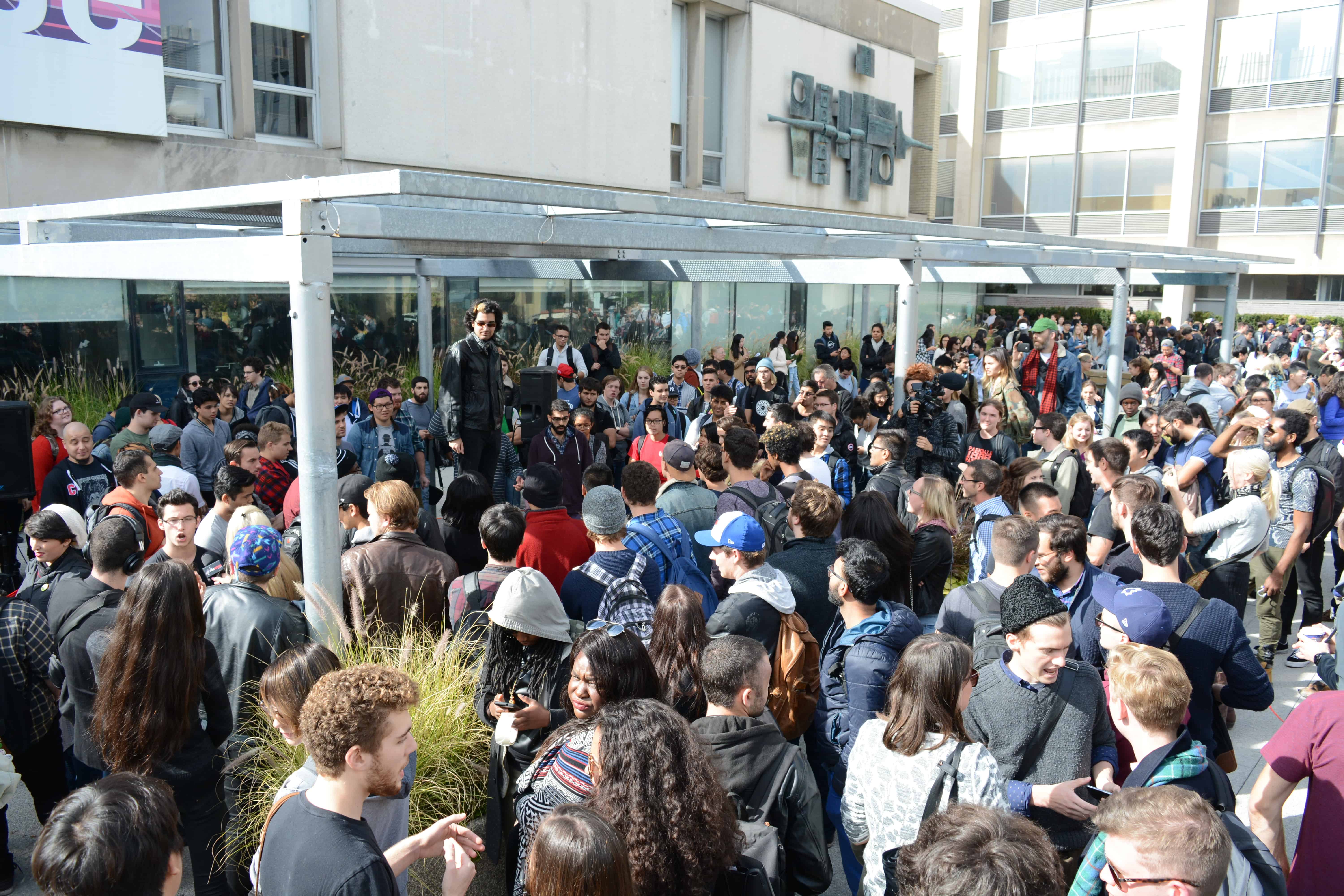The Varsity had its work cut out for it in 2016–2017. Allegations of financial mismanagement at the St. Michael’s College Student Union, ongoing conflict between the University of Toronto Students’ Union (UTSU) and the Black Liberation Collective regarding the former’s lawsuit against Sandra Hudson, and debates about “political correctness” and “free speech” provided ample breeding ground for tension and hostility.
Though it is important to see these conflicts to their conclusions, there is a case to be made for at least attempting to avoid repeating the firestorm of drama that occupied the campus last year.
For starters, being a student can already be a highly stressful experience. The pressures associated with maintaining good grades, sorting out housing crises, and coping with towering financial burdens mean that many people on campus are already in precarious mental health situations. Constantly having to weave through a thicket of campus tension can hardly improve matters in that regard, especially at a university where mental health supports remain lacklustre by many accounts. Verbal and digital sparring can also escalate to the point where students start to internalize negative comments.
We should also keep in mind that many campus conflicts are small manifestations of larger, more complex debates, many of which have been ongoing for decades. Though things may have come to a head this past year with the Jordan Peterson controversy and the formation of Students in Support of Free Speech, the constitutional principle of freedom of expression has a robust political and legal history, both on and off university campuses. In the latter part of the twentieth century, The Varsity covered a variety of controversies surrounding freedom of speech: in 1980, students fiercely debated The Toike Oike’s right to publish satire deemed offensive to women; in 1993, controversy erupted on campus following the presence of white supremacist groups on a U of T radio show.
The UTSU, in turn, has a long and exceedingly thorny relationship with many of its constituents; debates about inclusivity and transparency, as well as its ongoing ties to the Canadian Federation of Students (CFS), are not new additions to the roster.
This continuity should give you a sense of the often drawn-out and painstaking nature of campus conflict resolution, as well as how easy stalemates become when all sides are steadfast in their beliefs. When concrete solutions are virtually impossible to obtain within the span of a single academic year, are we willing to put our education and well-being on the line in pursuit of the answers?
It’s not that these issues don’t matter — certainly, the level of passion that emerges during campus debates demonstrates how strongly people have been affected them. But they also don’t necessarily have to be defining moments of your time at the university. If you’d rather troll the library than the deepest, darkest corners of the U of T subreddit, there are things you can do to maintain distance from messes that might not be worth your time.
To first-years, it might prove valuable to exercise caution or pick and choose your battles when choosing to get invested in campus controversies, especially given that you’re treading on new territory. Meanwhile, upper-years might benefit from a bit of reflection over the events of past years and considering how much of it they are willing to carry through to the new academic year. While these controversies can go on for decades, most of us are only at the university for a few years — the trick to putting things in perspective might simply be to consider how comparatively little time there is before graduation.
Admittedly, it would be unwise to encourage inaction or apathy on the part of the student body, but self-reflection and conflict resolution are not mutually exclusive. And in light of how quickly tensions flared last year, often to no discernable compromise, perhaps our best hope for coming to solutions is to step back and clear our heads.
We at The Varsity know, perhaps better than anyone, that solutions to campus conflicts hardly come that easy. This year will be no exception: the UTSU continues to face allegations of anti-Black racism, “free speech” remains a hot-button issue in campus discussions, and talk of CFS decertification are more salient than ever. But so long as campus remains under siege, here’s hoping this year’s battles are milder than the last.


